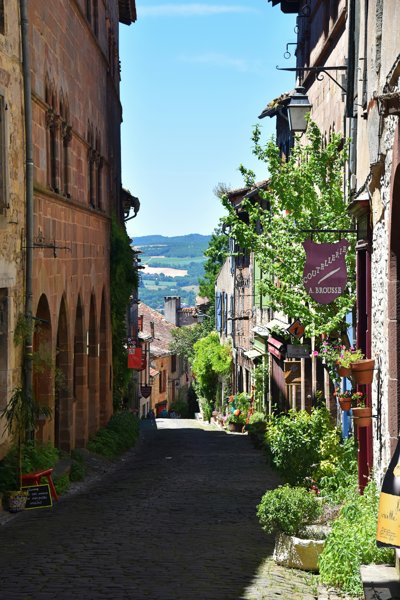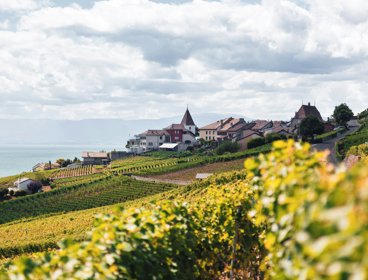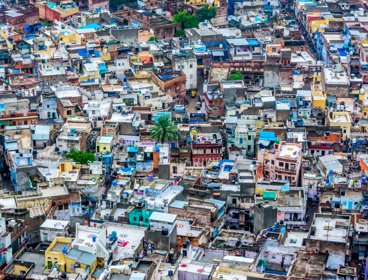Around 200,000 Britons have crossed the Channel and currently live in France. This pattern of migration is often characterised as the British middle classes undertaking ‘lifestyle migration’ in search of a quieter, more authentic way of life.
The Lot is one of France’s 96 ‘departments’ (an administrative divisions of the country) and, with a warm and dry climate, it attracts many British migrants. Located in inland Southwest France, the Lot is sub-division of the Midi-Pyrenees region. With a very low population density (32.4 people/km2), it is a very rural and picturesque part of France.
Dr Michaela Benson, a Lecturer of Sociology at the University of York, spent a year living in the Lot and has published a book detailing her findings. Read a summary of her research.
What draws the British middle classes to the Lot?
Moving to rural France is quite an aspirational thing for the British middle classes. Lots of people like the idea of living in that type of environment (tranquil, rustic, idyllic, unspoilt) and they are often inspired by their holidays in such places.
To begin with, I was seduced by the Lot in the same way lots of people are – it is a very beautiful place and there is a lot about the environment that I like. But when I lived there for a year, I realised that living there is about more than beautiful scenery. There are other factors that affect life in a place. Being somewhere beautiful is not, in and of itself, a good enough reason to migrate.
So do why people relocate their whole lives to the Lot?
Britons migrate to the Lot for a combination of factors. It is partly to do with the fact that these people do not like life in Britain. Personal and political events can drive people away. For example, I met people in the Lot who had had messy divorces in the UK and that was a big factor for them leaving the UK. Redundancy was also a factor for a number of people.
Is it hard for people to start a life in the Lot?
It is harder to make a life in the Lot than people initially imagine. There are a number of things that can cause people difficulty and whenever you move to a new place there are many things to learn about living there.
When people moved to the Lot in the 1990s and before, they would not have had Internet forums to talk to other Britons about migrating there. It would have been much more difficult to access information about life in the region.
Speaking to people that moved to the Lot in the 1990s and before, I got a real sense that they had to try really hard to collect information about the Lot before they migrated. Finding out how to do fairly basis things (enrolling children in school, accessing French healthcare, understanding the tax system) would take a considerable amount of effort. Even finding a place to learn French in the Lot could be a challenge.
Did anyone struggle so badly that they decided to move back to the UK?
I did not find that many people that were really struggling to make a life in the Lot. I met one couple that were really not enjoying life there and were considering moving back to the UK. They had migrated for a slower pace of life and set up a business to generate a modest income. But the business had become bigger and more successful than they had ever imagined and they found themselves working much more than they wanted to. So their failure to make a desirable life in the Lot was actually a result of their commercial success!
How do people make a living in such a rural area?
Many people run holiday homes to generate a very modest income. But there are some more entrepreneurial people, who take a bit more of a gamble and start their own business. A lot of these businesses are not dependent on the local economy, but rely on the Internet to sell goods or services throughout France or overseas.
A lot of British migrants to the Lot own their properties outright – they rarely rent and often do not have a mortgage. Household expenditure is therefore not that large and they do not need to generate that big an income. But the bureaucracy involved in setting up a business in France can be quite troublesome for a recent migrant. Setting up a business in a new country demands real commitment.
Do residents ever suffer from feelings of isolation?
Through my research, I did meet one woman that felt isolated. She was a single elderly woman who suffered from a physical disability and had chosen a property in a village with no public transport. She was also the only Briton in the village. Because she was not very mobile, she started to feel quite isolated and ended up moving to a bigger, more central town in the Lot.
British migrants do have to be careful about where they choose to settle. They need to know how connected a village or town is. For example, many young families talked about the importance of choosing to live in a place with a regular bus service so that their children could get to school.
How accessible is the Lot? Can migrants easily fly back to the UK?
It really depends on where you live in the Lot – the department covers an area of more than 5,000km2. For my research, I stayed in the Southeast of the department and it would take an hour and a half to get to Rodez, and three hours to get to other airports in the region. So the Lot is fairly accessible to British migrants.
Low-cost airlines only began to improve British access to the Lot in the late 1990s and early 2000s (for example, EasyJet was founded in 1995). But, whilst they have opened up more possibilities for visitors to the Lot, they are not a major factor in encouraging people to migrate to the Lot.
The Lot is a summer holiday destination. What is it like in the winter?
Learning the seasonality of the place was a big part of my research. It was important for me to be therefore for a whole year, otherwise I would not have seen the incredible differences between summer and winter.
There are not many tourists in the winter and life can become difficult for the locals. It is a very beautiful place in the winter, but there is not a huge amount for people to do. The winter climate is cold, but dry. People tend to spend their spare time inside with a log fire.
Michaela was interviewed in August 2013



